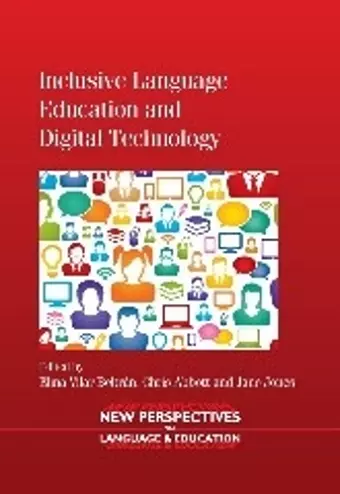Inclusive Language Education and Digital Technology
Jane Jones editor Chris Abbott editor Elina Vilar Beltrán editor
Format:Hardback
Publisher:Channel View Publications Ltd
Published:15th May '13
Currently unavailable, and unfortunately no date known when it will be back
This hardback is available in another edition too:
- Paperback£28.95(9781847699725)

This volume brings together chapters which collectively address issues relating to inclusive language education and technology. Topics include language teaching to the Deaf, Hard of Hearing and students with dyslexia, benefits of multimodal approaches for language learning, examples of software use in the language classroom, and copyright matters. The book demonstrates not only a commitment to inclusive practices but suggests practical ideas and strategies for practising and aspiring language teachers and those in support roles. The book also provides case studies and relates the issues to theoretical and policy frameworks. In drawing on different European perspectives, the book aims to promote discussion and collaboration within an international community of practice, especially about the role of technology in widening and strengthening opportunities for teachers and pupils alike and ensuring more effective Modern Foreign Language teaching, learning and assessment for all learners.
A timely and thought-provoking book which will enhance the teaching of MFL for all those with special educational needs. This stimulating book is located sensitively within relevant theoretical, pedagogical and policy frameworks, whilst illuminative case studies and inspirational examples of good practice support the whole most effectively. A 'must' for everyone involved in the development of the inclusive language education agenda and, in particular, the harnessing of digital technologies to this end.
-- Catherine Watts, University of Brighton, UKIn an age of increasing specialisation a publication that brings together such diverse fields as language learning, inclusive education and digital technology is to be warmly welcomed. The impressive array of practitioners and experts show how these disparate fields can illumine each other and, in so doing, create new opportunities for language learning. Accounts of policy and practice are seamlessly interwoven and will, I am sure, be a source of inspiration and ideas for any teacher seeking to make language learning more accessible to all.
-- Hilary McColl, Formerly National Curriculum Development Officer for Modern Languages and Special Educational Needs, ScotlandIn an age when inclusive language education prevails in schools internationally and competence in languages is considered to be an indispensable skill, this volume is undoubtedly a valuable contribution to language education in general. It definitely serves its purpose, to present how the notion of “languages for all”, as expressed in the nine chapters, could be achieved by exploiting all the technologies available. The book is well structured with all the chapters forming a unified whole. The fact that the book is divided into two parts provides an opportunity to become familiar with the theoretical background on some of the most important concepts discussed in the book in the first part and with practical examples of how the theory could be realised in the second part. Therefore, the book could not only be read by teachers, researchers, stakeholders or language education students but also by anyone interested in the field of inclusive education.
-- Elis Kakoulli Constantinou, Cyprus University of Technology, Cyprus * the LINGUIST LiISBN: 9781847699732
Dimensions: 210mm x 148mm x 17mm
Weight: 377g
182 pages